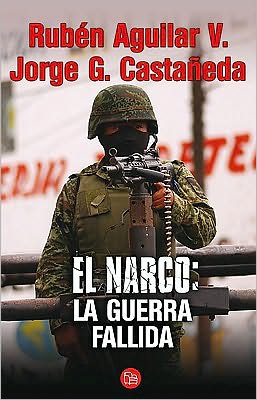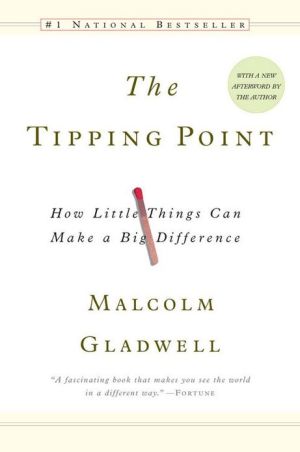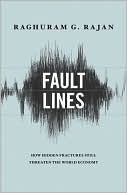El narco: La guerra fallida
El narcotráfico ha sido una de las cuestiones más cruciales en la historia reciente de México. Sin embargo, en torno a este fenómeno siguen existiendo malentendidos y medias verdades. Rubén Aguilar V. (coordinador general de la secretaría particular de la presidencia de 2000 a 2006) y Jorge G. Castañeda (reconocido analista político y ex canciller de México de 2000 a 2003) abordan el tema desde una perspectiva diferente, analizan la estrategia del actual gobierno en la llamada "guerra" contra...
Search in google:
El narcotráfico ha sido una de las cuestiones más cruciales en la historia reciente de México. Sin embargo, en torno a este fenómeno siguen existiendo malentendidos y medias verdades. Rubén Aguilar V. (coordinador general de la secretaría particular de la presidencia de 2000 a 2006) y Jorge G. Castañeda (reconocido analista político y ex canciller de México de 2000 a 2003) abordan el tema desde una perspectiva diferente, analizan la estrategia del actual gobierno en la llamada "guerra" contra el narco y desmienten versiones oficiales. Para ello cuestionan, de manera clara y con datos objetivos, las premisas de la acción gubernamental: el supuesto de que México se ha vuelto un consumidor de drogas, la idea de que el incremento de la violencia se debe al éxito de combate a los cárteles, el tráfico de armas desde Estados Unidos, los paralelismos y diferencias que hay con la situación colombiana, el debate sobre la legalización, etcétera. Library Journal Setting out to show that the ambitious, expensive, and hideously bloody drug war being waged by President Enrique Calderón's government is based on false premises, Aguilar and Castañeda use decades of surveys and government statistics to topple fallacious popular misconceptions, thus building a rock-solid case for a thesis that has sent shock waves through Mexican society. They show that drug use in Mexico is relatively insignificant by world standards and—contrary to claims—has not grown in recent years; that arms traffic across the U.S. border is much less than it is often made out to be; that Mexico's general crime rate has not suddenly spiked; and that the violent practices of contemporary drug lords are by no means historically exceptional. Calderón's drug war is the signature initiative of his presidency, and here the authors suggest that its real motive was to lend legitimacy to an administration that started on dubious footing after an unconvincing win in the 2006 election. Six chapters dissect the very foundations of the administration's oft-repeated rationale for militarizing the country's borders and engaging in open warfare with drug gangs nationwide. The collateral damage of the war has amounted to the loss of thousands of lives, say the authors, who cannot be accused of harboring leftist sympathies: both served under Vicente Fox, who preceded the current president and belongs to the same conservative political party. Looking toward other Latin American states for sensible alternatives, they conclude with suggestions that include a more tolerant semitruce with traffickers and a revision of the nation's policing structure. A bracing read recommended for readers interested in border issues and Mexican governance.—Bruce Jensen, Kutztown Univ. Lib., PA Copyright © Reed Business Information, a division of Reed Elsevier Inc. All rights reserved.
\ Library JournalSetting out to show that the ambitious, expensive, and hideously bloody drug war being waged by President Enrique Calderón's government is based on false premises, Aguilar and Castañeda use decades of surveys and government statistics to topple fallacious popular misconceptions, thus building a rock-solid case for a thesis that has sent shock waves through Mexican society. They show that drug use in Mexico is relatively insignificant by world standards and—contrary to claims—has not grown in recent years; that arms traffic across the U.S. border is much less than it is often made out to be; that Mexico's general crime rate has not suddenly spiked; and that the violent practices of contemporary drug lords are by no means historically exceptional. Calderón's drug war is the signature initiative of his presidency, and here the authors suggest that its real motive was to lend legitimacy to an administration that started on dubious footing after an unconvincing win in the 2006 election. Six chapters dissect the very foundations of the administration's oft-repeated rationale for militarizing the country's borders and engaging in open warfare with drug gangs nationwide. The collateral damage of the war has amounted to the loss of thousands of lives, say the authors, who cannot be accused of harboring leftist sympathies: both served under Vicente Fox, who preceded the current president and belongs to the same conservative political party. Looking toward other Latin American states for sensible alternatives, they conclude with suggestions that include a more tolerant semitruce with traffickers and a revision of the nation's policing structure. A bracing read recommended for readers interested in border issues and Mexican governance.—Bruce Jensen, Kutztown Univ. Lib., PA Copyright © Reed Business Information, a division of Reed Elsevier Inc. All rights reserved.\ \








